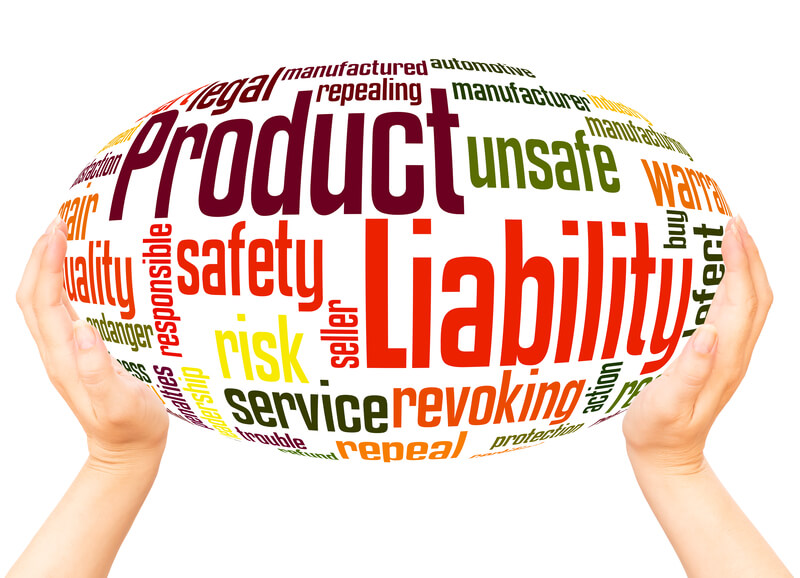Did you suffer an injury from a defective product? Has someone you know purchased a product, only to find there was a manufacturing defect, design defect, or marketing defect?
Product Liability Laws provide an avenue of legal recourse if you have encountered a defective product. This often also can fall under the umbrella of modern consumer protection laws. But this was not always the case.
What Are Product Liability Laws? A Brief History
Product Liability Laws allow us to hold businesses, manufacturers, and sellers liable for defective products and designs that cause damage or injury. This can take any number of forms. From defective appliances, to dangerous toys, to pharmaceuticals that don’t recieve proper preparation. These laws establish boundaries and a duty of care that is owed to the buyer or user. They entitle you to certain recompense based on the circumstances of the breakdown. These laws are layered, and complex. Learning a brief history of product liability laws is a great way to protect yourself and loved ones. Even if it is a “just in case.”
The road to product liability began with a first step in 1916, with the case of Macpherson v. Buick Motor Company. With this case, the precedent was established that a manufacturer must build their products carefully if they have a reasonable knowledge that a breakdown of the product could cause harm to others. It wasn’t until 1979 that The U.S. Department of Commerce proposed a template that would allow states to draft their own product liability laws to protect their consumers.
It should be noted that there are currently no federal product liability laws. Every law is enacted and enforced at the state level.
Types of Product Liability
While having a defective product is never something you look forward to, you don’t have to enter panic mode because there are legal avenues you can pursue to hold the responsible party accountable. Still, it’s helpful to know the type of product liability when dealing with defective products. Knowing the differences is an important lesson in our brief history of product liability laws.
Manufacturing Defect
This occurs when there is a defect or flaw at the manufacturing stage that was unintended, and will produce unintended consequences. This generally occurs when there is a deviation from the manufacturing design. Then, a flaw presents later after the consumer has made the purchase. Recently, Rivina recalled over 13,000 trucks to repair a steering defect that could have potentially impacted the performance and safety of the vehicles.
Design Defect
A design defect is when the product manufacturing is done according to the specific design, or in accordance with a patent, but the design itself inherently has flaws or is dangerous. These design defects can go unnoticed at times, up until the point where the product causes serious harm or injury. This is especially true in cases of automotive accidents.
Design defects make up a majority of the product liability lawsuits that are in courts. But this does not necessarily mean that a victory is a guarantee. In fact, to establish that there is a design defective, there is a procedure. Any one filing a product liability claim must be able to conclusively prove that there is a better design.
Unstable structures, faulty mechanical use, choking hazards for children’s toys, and products that are prone to melting are all common examples of design defects.
Breach of Warranty
A warranty is a contract that states that the manufacturer of a product will repair or replace it within a given time. When you hear breach of warranty simply think breach of contract. A breach of warranty is any violation or deviation from the expressly worded or implied warranty surrounding a product.
A seller will generally attempt to assure a buyer of the quality of the item. Whether the assurance is written, verbal, express, or implied. If the quality does not match the assurances given, there has been a breach of warranty.
Marketing Defect
This occurs when there is a problem with the marketing of a defective product to an audience. These marketing defects can take the form of faulty instructions on assembly, improper or inadequate warnings regarding the features of a product, faulty instructions regarding operation of the product, or inadequate warnings on the use of a certain product.
If there has been a failure to warn, or a failure to instruct proper use of the product, then there could be marketing defects at play.
Know Your Rights Concerning Product Liability: Hire an Attorney
Do you feel more prepared or enlightened now that you have read a brief history of product liability laws?
While most product liability cases never go to trial, there has been a significant uptick in the legal defense costs and liability insurance purchased by manufacturers and sellers in the U.S. Product liability is something to take seriously. There are far reaching ramifications for you and your loved ones. Especially if an injury results from the use of a faulty or defective product.
If you or a loved one has received such an injury, you should not hesitate to Submit a request online or call us today at (866) 345-6784 to get in touch with an attorney in your area!

